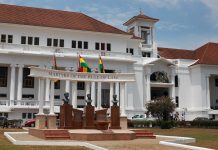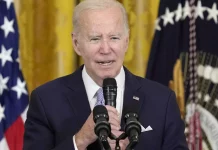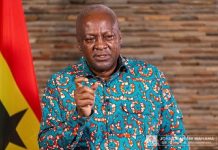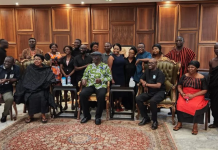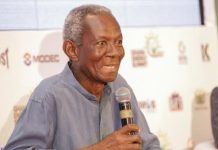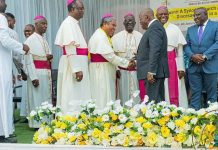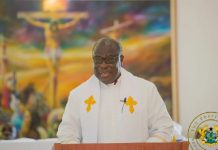By a quirk of circumstances, two opposite features of modern British politics manifested themselves in the same week.
On 8 September 2022, Queen Elizabeth the Second breathed her last at Balmoral Castle, to be succeeded by her eldest son, Prince Charles. He is now King Charles the Third.
A day earlier, the new British Prime Minister, Liz Truss, had announced her Cabinet. Next to herself, the most important member of the new Government is Mr Kwasi Kwarteng, who had been Business Secretary in the Cabinet of the former Prime Minister, Boris Johnson.
Kwasi Kwarteng is now the UK’s “Chancellor of the Exchequer”, or what is known elsewhere as “Finance Minister”.
Kwarteng’s rise to such a high position in the government of the UK is connected, in a way, to how Britain is evolving as a society. On the one hand, while Kwarteng has benefited from a diversification of the top rungs of the British political ladder (caused by the advent of meritocracy) the succession, as King, of Prince Charles, marks the consolidation of inherited rank and privilege. So, it can be said that t “Britain is, today, both advancing and staying the same (socially speaking!”)
To us in Africa, of course, what should interest us most is the ability of Kwasi Kwarteng to have risen so high.
His full name is Akwasi Addo Alfred Kwarteng and he was born to Ghanaian parents in the London borough of Waltham Forest, on 26 May 1975. He is the only child of Alfred Kwasi Kwarteng and Charlotte Boaitey-Kwarteng. Alfred Kwarteng, now 75, is an economist, born at Kwabeng, in the Eastern region of Ghana. He and Charlotte, a barrister, went to the UK from Ghana as students in the 1960s. She is an Asante.
Kwarteng Senior was educated at Adisadel College, Cape Coast, and the University of Ghana, Legon. After Legon, he did a post-graduate course in economics at the London School of Economics and Political Science. Following that, he worked in London for the Commonwealth Secretariat in London.
Kwasi Kwarteng’s mother, Charlotte, is a barrister who has set up a well-known legal firm in London.
Kwasi got married to Harriet Edwards in 2019. They have one child.
The Kwartengs were so education-conscious that Kwasi’s curriculum vitae reads like a fable. After starting school at an “ordinary” state primary school, he was sent to Colet Court, an independent (that is, fee-paying) preparatory school in London. His brilliance showed itself there when at the early age of 13; he won a prize there called the “Harrow History Prize”.
Kwarteng then went to Eton College, a college known as the “breeding ground” for top British politicians, including former Prime Ministers David Cameron and Boris Johnson. He won a “King’s Scholarship” to go there (which meant that he spared his parents some enormous expenses, as Eton fees are among the highest in Britain.) At Eton, he won a prestigious prize known as “the Newcastle Scholarship”.
From Eton, Kwasi went to read classics and history at Trinity College, Cambridge, and achieved a first class in both subjects. He won another prestigious prize, the “the Browne Medal”, at Cambridge.
Kwarteng was he most brilliant of the Trinity College, Cambridge University, Quiz team which won the incredibly difficult TV show, University Challenge, in 1995 (in the first series after the programme was revived by the BBC in 1994).
Before becoming a Member of Parliament, Kwarteng worked as a columnist for the rightwing newspaper, The Daily Telegraph, and as a financial analyst at JPMorgan Chase and other investment banks. He wrote a book, Ghosts of Empire, about the legacy of the British Empire (published by Bloomsbury in 2011.) Given his rightwing inclinations, the book was supposed to endorse the view held by many in the Conservative Party that the British empire was a good thing for its subjects. But it told the empire story in a “warts and all” manner.
Kwarteng also co-authored Gridlock Nation with Jonathan DuPont in 2011, about the causes of, and solutions to, traffic congestion in Britain.
Kwarteng must possess the tough skin of a hippopotamus because the Conservative Party (especially its rightwing, to which he belongs) is not known for its racial tolerance. He is obviously so posh in speech and so dismissive of the Enoch Powell faction (who believe that Britain could be “swamped by non-white immigrants” who will cause rivers of blood” to flow through the streets!) that he can close his eyes to any racist “nonsense” in the Conservative Party. Maybe he thinks he can “reform” the party! We shall see.
To the UK’s blacks, there is little dout that his rise has provided a living proof that if a child ignores racism and focuses on making the most of the educational opportunities available in the UK; he/she can rise to the very top of any profession he/she chooses, including the politics through which even policies can be changed.
I therefore say a warm “ayikoooo!” to Kwasi Kwarteng. Whether he welcomes it or not, he’s definitely the role model needed by the blacks of the UK. Of course, if he becomes an apologist for any racist policies that the Truss Government might pursues, he will attract twice the opprobrium usually reserved for British black Conservatives!
Now to Queen Elizabeth the Second: she won many hearts for Britain during her 70-year-reign and my sympathy goes out to all her children and close family members. She showed she was a very plucky lady by visiting Ghana in 1961, at a time when there was much unrest in the country against the dictatorship of the Kwame Nkrumah Government, and when, as a consequence, it was feared that she could become the victim of a bomb blast.
I remember her displaying good humour by laughing uproariously at the antics of the famous Ghanaian clown, Ajax Bukana, at a parade held in her honour at the Black Star Square in Accra.
Politically, it was largely because of her personable nature that many of the black Commonwealth countries remained in the organisation, despite the sympathy shown by British governments – especially the Thatcher government — towards the racist government of South Africa, as its black people fought to achieve racial equality. At one stage, some African countries suggested that Britain should be kicked out of the Commonwealth but that the organisation should stay, with Queen Elizabeth as its head!
What a capital idea would it have been, had it happened!
— Cameron Duodu








